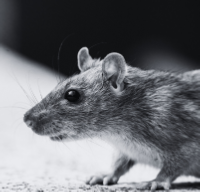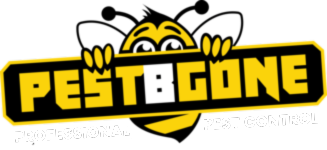Pestbgone Limited
The Mews, Hounds Road,
Chipping Sodbury, Bristol GL8 8UL
Buckinghamshire -
Office: 01628 473062
Onsite: 07728 314363
South Gloucestershire -
Office: 07585 124939
Onsite: 07585 124939
Our Services
Registered in England and Wales.
Company No: 13370531
VAT No: 364671477
Registered Address: The Mews, Hounds Road, Chipping Sodbury, Bristol, South Gloucestershire GL8 8UL
All Rights Reserved © 2025 Pestbgone Ltd






Our Services
Rats
Rats are quite common in both rural and urban areas and apart from the damage that they cause, they are also carriers of serious diseases. A rat colony can start with one individual, pregnant rat moving into a new area and unless there are obvious signs of damage such as torn packages or droppings, the infestation may not be noticed in the early stages. Except when there are a lot of rats, or food is scarce, they will generally only come out at night and daylight sightings are unlikely. Pregnancy lasts about 21 days and a single female on average produces a litter of about 6 -
Mortality of the young is high, but even so a rat infestation can grow very quickly. As the number of rats increases, rat presence and damage become obvious. Signs of an infestation may be one or many of the following;
Rat Control
It may not be rats that are causing the problem; other species can be mistaken for rats, particularly in outdoor locations where the only evidence is holes and runs. Many species of wildlife such as voles are fully protected by law and poisoning is an offence. Therefore, assessment of your infestation by a trained professional is a wise investment.
Controlling rats starts with a thorough survey to check the size and nature of the problem; if required, poison will then be laid in the most suitable locations. A pest control technician can choose the more effective professional poisons and can vary the way the bait is laid to take advantage of the rat's natural habits. Professional pest controllers also have access to purpose made poison bait boxes, to ensure poison is laid safely and in accordance with the law. Rats should start to die within a week and if the infestation is a small one, control will be fairly quick. In a larger infestation, it may take a while until the more timid rats are able to feed freely and eat enough bait to be killed. Most of the poisons used will require rats to feed for several days; this makes them safer to use around houses. One dose does not kill, but it is important that the rats should have little other food than the poison bait. The pest control technician will explain how you can help by removing other sources of food. Dogs in particular are very susceptible to poisoning by rodenticides.
Rodent Treatments
1/ Our Service is to attend your home and survey it for the presence of rats living within your property only, and if this is confirmed, then to carry out a pest treatment if it is safe to do so.
2/ This may require us to lay bait and or traps and return to monitor the outcome. At least 2 visits will be required as it is current law that any rodenticides have to be removed when the treatment is complete.
3/ If we identify to you any property repairs, defects, or husbandry issues that may affect our treatment, or delay or prevent resolution, these must be promptly attended to. (a quotation can be supplied to carry out any proofing works, no works will be carried out unless agreed)
4/ We cannot guarantee how quickly the rats will feed from our poison, especially if alternative more attractive food sources remain.
5/ Please note that, despite the treatment, the pests could return or you may still have further sightings after treatment, particularly if the main infestation was not at your home.
6/ If we do identify a potential source outside of your property boundary or within communal building fabric or linked floors or lofts, where we believe the rats may be coming from, we will advise you and notify the relevant local authority as only they have the powers to take any necessary action.
7/ Before the first visit and until the final visit, you hereby agree: a. not to move any poisons or tamper with equipment / bait stations; b. not to interfere with our treatment in any way, or try to treat the rodents yourself or allow anyone else to do so; c. to comply with all the instructions we provide (whether in writing or not) including those in relation to tidying the premises and maintaining it in a clean and tidy condition;
8/ Where there is evidence of infestations emanating from private or public sewers or from breaches in soil drains we may require you to obtain specialised inspections or works. We can carry out these works however there will be an additional charge.
9/ We are legally obliged to remove all rodenticides laid at your property when our treatment ends for whatever reason. You shall ensure that we have free access to do this.
WikiPest
Everything you need to know about
Rats

We’re here to help -
Buckinghamshire & South East
South Gloucestershire & South West
